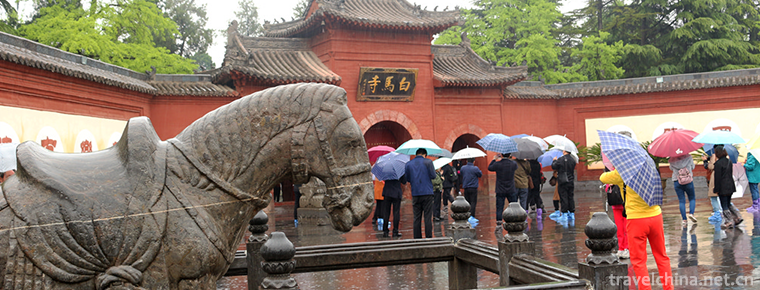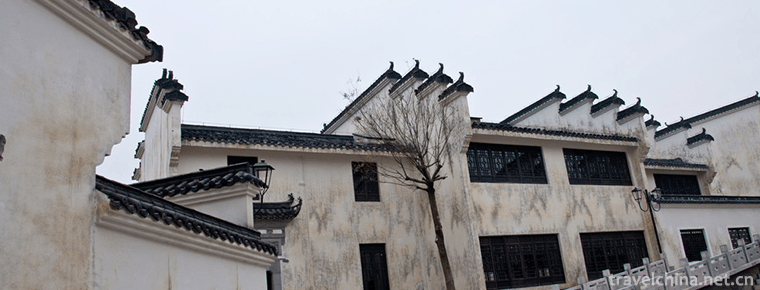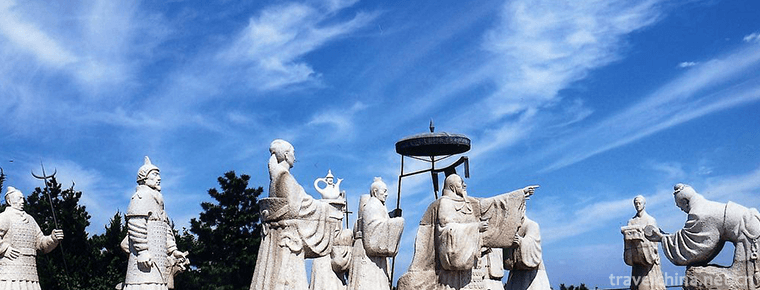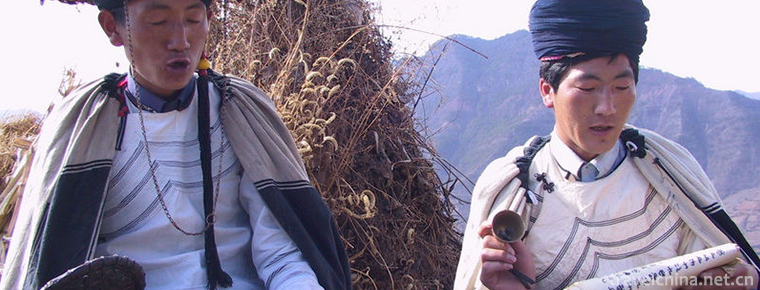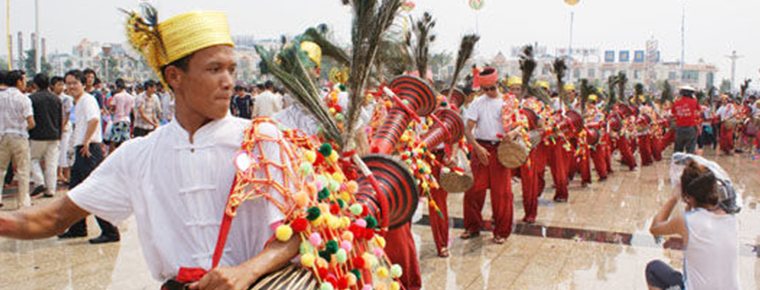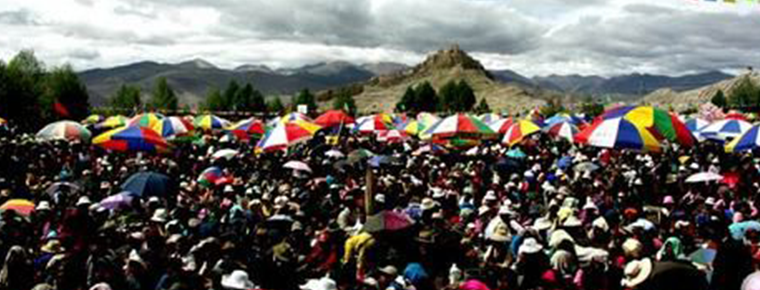Sichuan University Of Science and engineering
Sichuan University Of Science and engineering
Sichuan University of Light Chemical Industry is a general full-time university with more than 50 years of undergraduate and nearly 20 years of postgraduate education, which has coordinated development of engineering, science, management, education, literature, history, art, law, economics and other nine disciplines. The school has two campuses. They are located in two famous historical and cultural cities in Sichuan Province. One is Zigong City, which enjoys the reputation of "China Lighting City, Dinosaur Township and Millennium Salt Capital". The other is Yibin City, which has the reputation of "China Wine Capital and the First City of the Yangtze River". The school has been awarded two successive national projects of "Basic Ability Construction Project of Universities in Central and Western China". It is the national "Education and Training Plan for Excellent Engineers", "National Innovation and Entrepreneurship Training Plan for College Students", the first batch of transformation bases of scientific and technological achievements and technology transfer bases of universities in China, and the first batch of post-doctoral innovations in Sichuan Province. Practical bases, the first batch of Pilot Universities for innovation and Reform in Sichuan Province, the second batch of provincial-level demonstration universities for deepening innovation and entrepreneurship education reform in Sichuan Province, and demonstration scientific research units for high-tech industries in Sichuan Province.
History Evolution: The school is a undergraduate university that moved westward in the "three-line construction". In 1965, it responded to Chairman Mao Zedong's call and Premier Zhou Enlai's instructions, and moved part of the security specialty of the former East China Institute of Chemical Technology (now East China University of Technology) westward to Zigong, Sichuan, to establish the Southwest Branch. In 1979, it was renamed Sichuan Institute of Chemical Technology, and in 1983 it was renamed. It is called Sichuan Institute of Light Chemical Industry. In 2003, the four universities were merged into Sichuan Institute of Technology. In December 2018, the Ministry of Education approved the renaming of Sichuan University of Light Chemical Industry.
After more than 50 years of schooling, the school's orientation of running a high-level comprehensive university with distinct characteristics and outstanding advantages has become increasingly clear. It adheres to the socialist orientation of running a school, carries out the Party's and the state's educational policy, aims at running a satisfactory education for the people, bases itself on Sichuan, serves the southwest, faces the whole country and the world. The university spirit of "taking Huangling Spirit as the foundation, advocating academy, carrying forward democracy and pursuing excellence" has been cultivated and condensed, and a unique ideological system of running a school has been formed.
Infrastructure: The school has complete facilities and beautiful campus environment. It is an ideal place for students to lay a foundation for their life dreams and teachers to realize their academic aspirations. The campus covers an area of nearly 4,000 mu, the building area of the campus is 118,000 square meters, and the total value of state-owned assets is more than 6 billion yuan. In addition, the Chengdu Institute of Higher Education (165 mu, 200,000 square meters) in Tianfu New Area of Chengdu and the East New Town Campus of Zigong (1100 mu, 300,000 square meters, officially opened in September 2020) are under construction. At present, there are more than 2.7 million books and paper documents, 76 Chinese and foreign literature databases, 50 T local mirror of electronic resources, equivalent to more than 5 million electronic resources.
Teachers: The school has a team of highly skilled, energetic and energetic teachers. There are more than 2200 faculty members in the school, of which 1586 are full-time teachers: professors and associate professors account for more than 35%, and teachers with doctoral and master degrees account for nearly 80%. The school currently has 79 experts at or above the provincial and ministerial level, such as the winner of the National Outstanding Youth Science Fund and the "Thousand People Program" of the Ministry of Central Organizations. The school employs more than 100 specially appointed professors, part-time professors and visiting professors, including 4 academicians of the two academies, 12 specially appointed professors of the Yangtze River Scholars and 12 recipients of the National Outstanding Youth Science Fund.
Discipline construction: The school has three key disciplines in Sichuan Province, including chemical technology, pattern recognition and intelligent system, fermentation engineering, etc. There are seven first-level master's degree authorization points in chemical engineering and technology, control science and engineering, mechanical engineering, management science and engineering, food science and engineering, chemistry and mathematics, and master's degree in engineering. Six professional degree categories, including Master of Law, Master of Education, Master of Arts, Master of Accounting and Master of Agriculture, cover 16 professional degree fields. A comprehensive university running pattern characterized by light industry and chemical industry and coordinated development of engineering, science, management, humanities and social disciplines has been formed.
In the long-term process of running a school, the school has formed the characteristics of broad foundation, integration of literature and science, highlighting application and innovation. With fermentation engineering as the core of provincial key disciplines, a group of food and light industry disciplines with prominent advantages has been formed, which has been praised as the cradle of cultivating liquor-making talents in China by the industry. With chemical engineering and technology as the core, chemical industry, process equipment and control engineering, environment and safety, material science and engineering have been built to support chemical industry. Subject group of industry development. The innovative achievement "New Technological Development for Industrialization of Organic Fluorine Monomers and High Performance Fluorine Polymers" won the second prize of National Science and Technology Progress in 2015. With the art discipline as the core, a unique discipline direction of "art design" has been formed, which leads the inheritance and development of the national intangible cultural heritage color lantern cultural industry, and has become the support. "Zigong Lantern" cultural brand and industry continue to expand and strengthen the important human resources protection.
Talent training: There are 21 secondary colleges and 82 undergraduate majors in the school, which are enrolled in 31 provinces (municipalities, autonomous regions) of the country. There are more than 30,000 full-time undergraduates, postgraduates and overseas students in the school.
The school insists on improving the quality of personnel training as the core and vigorously implements the project of teaching quality. The school has four national characteristic majors, nine provincial characteristic majors, five national "Excellence Plan" education and training majors, nine provincial "Excellence Plan" education and training majors, three national engineering practice education centers, one National University Students'off-campus practical education base, one provincial post-doctoral innovation and practice base, and three provincial "Excellence Plan" education and training majors. There are provincial teaching demonstration centers, two provincial virtual simulation experimental teaching centers, one provincial talent training model innovation experimental area, 12 provincial excellent course resource sharing courses and 6 Sichuan excellent online open courses.
The aim of the school is to cultivate high-quality applied talents that meet the needs of the society, and constantly strengthen the cultivation of students'comprehensive quality, innovative spirit and practical ability. In recent years, students have participated in the national "Internet +" College Students' innovation and entrepreneurship competition, "Challenge Cup" extracurricular academic science and technology competition, University Students' Mathematical Contest in modeling, and the National Undergraduate Electronic Design Contest. More than 1000 provincial and ministerial awards have been awarded. The employment rate of graduates is over 95%, which is highly recognized by the society. It is an advanced unit of employment for college graduates in Sichuan Province.
The school adheres to the cooperative development road of "government, industry, education and research", actively brings into play the advantages of discipline, talent and technology, cooperates with local governments, enterprises and institutions in various forms, and jointly undertakes more than 2500 vertical and horizontal cooperation projects. Actively promote the construction, sharing and win-win situation of characteristic and advantageous disciplines and high-quality resources of the industry, and jointly build an innovation platform for production, teaching and research. In 2017, our school was awarded the license of China Liquor Industry Association to build "China Liquor Academy". Focusing on serving the transformation and upgrading of liquor industry, Wuliangye Liquor College was built with Wuliangye Group on the platform of Bioengineering College, China Eco-liquor Industry Technology Research Institute was built with Suining Municipal Government, and Qionglai Municipal Government was built with Qionglai Liquor Industry Technology Research Institute. In cooperation with Zigong Municipal People's Government and Zigong Lantern Culture Industry Group, we will build a "Lantern College" to realize the linkage between talent training and industrial demand.
Over the past half century, the school has trained more than 200,000 graduates, and a large number of outstanding alumni such as Yan Deyue, academician of the Chinese Academy of Sciences, Zhang Liang, chairman of Luzhou Laojiao Group Co., Ltd. have made remarkable achievements in the scientific, business and educational fields.
Scientific research: In recent years, the school has undertaken 83 national scientific research projects and 393 provincial and ministerial scientific research projects. The funds for scientific research in place have increased from 20 million yuan in 2015 to more than 80 million yuan in 2017, and are expected to exceed 100 million yuan in 2018. They have won one second prize for national scientific and technological progress, 39 provincial and ministerial prizes for scientific and technological achievements, and more than 150 municipal prizes for scientific and technological achievements. They have published more than 160 academic works and won 402 authorized patents (174 of which are authorized invention patents). He has published more than 5288 academic papers (2212 of which are included in SCI, EI, CPCI-S, CSSCI, etc.)
Our school has three provincial key laboratories: Sichuan Key Laboratory of Brewery Biotechnology and Application, Sichuan Key Laboratory of Artificial Intelligence, Sichuan Key Laboratory of Material Corrosion and Protection, Sichuan Key Laboratory, China Salt Culture Research Center, Sichuan Wine Development Research Center, Sichuan Key Research Base of Philosophy and Social Sciences, and Folklore Lamp. Cultural popularization base Sichuan social science popularization base 1; Sichuan innovation team 5; Sichuan academician (expert) workstation 1; Sichuan Engineering Laboratory 2; Sichuan Institute of Industrial Technology 2: Sichuan University Key Laboratory 5; Sichuan University Humanities and Social Sciences Key Research Base 4; Sichuan Travel One key base for tourism research, one base for intellectual property education and training in Sichuan Province, four collaborative innovation centers in Sichuan Province in 2011, and three alliances for technological innovation in Sichuan Province.
Social service: The school always adheres to the concept of "discipline supporting industry, professional service industry", takes serving local economic and social development as its responsibility, strengthens the cooperation mode of "combining research with learning, integrating industry and education" of "government, industry, University and research", and constructs the cooperation mode of "providing advice for government decision-making, solving difficult problems for enterprise development, and serving the city". Local Service System of People's Learning Providing Opportunities.
The school has signed comprehensive strategic agreements and cooperation agreements with more than 100 well-known enterprises such as Wuliangye, Luzhou Laojiao, Chengguang Chemical Research Institute of Zhonghao Group, West China Energy and so on. It has carried out personnel training and scientific and technological cooperation in an all-round way to transform and upgrade local industries and local economy. Social development has made important contributions.
In order to better serve the regional economic development, the school has set up the South Sichuan Development Research Center, the Industrial Transformation and Innovation Research Center, the Popularization Base of Local Characteristic Culture, the Research Institute of Color Lamp Design and Culture, the Research Institute of Filtering Separation and Purification Technology Design, and the Valve Project in combination with the industrial planning of the South Sichuan Economic Zone. Technical research centers, research institutes of paper science and technology and research institutes of functional materials directly serve local research institutes to provide support for local development.
Cooperation and Exchange: Adhering to the concept of open school-running, the school actively carries out foreign exchange activities, has established cooperative school-running mechanisms with many domestic universities such as East China University of Technology and Nanjing University of Technology, and has established cooperative relations with foreign universities such as the United States, Britain, Germany, Australia, Cuba, Belarus and Pakistan. Teachers and students go abroad to communicate; actively carry out cross-strait educational and cultural exchanges and college students'activities in Hong Kong.
To actively respond to and cooperate with the strategic layout of the "one belt and one way" strategy, the school actively seeks for partners in higher education along the "one belt and one way" line, persists in carrying out international exchanges and cooperation, promotes the level of school running, and energetically recruits and trains international students. At present, we have enrolled 52 international students from the United States, Britain, Australia, France, Korea, Pakistan, Laos, Nigeria and other countries.
Following the national educational policy and the law of higher education, adhering to the motto of "Honest Virtue, Reason, Encouragement and Hard Work", the school closely revolves around the goal of building an innovative university, an open university, a wise University and a harmonious university, emancipating the mind, daring to innovate, daring to assume, pursuing excellence and striding forward development, and striving to cultivate morality, intelligence, physique and development. All-round development of the United States and labor, strong social adaptability, solid foundation, innovative spirit and practical ability of high-quality application-oriented talents, make the school into a high-level comprehensive university with distinctive features and outstanding advantages.

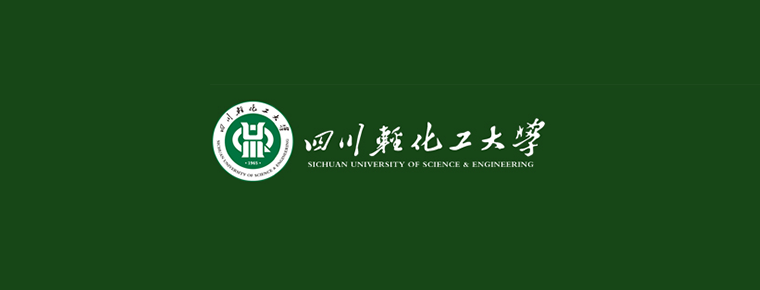
-
White Horse Temple Baima Temple
Baima Temple is located in Baima Temple Town, Luolong District, 12 kilometers east of the old city of Luoyang City, Henan Province. Founded in the eleventh year of Yongping in the Eastern Han Dynasty .
Views: 179 Time 2019-01-02 -
the Capital Cities and Tombs of the Ancient Gaogouli Kingdom
Gaogouli is located in Ji'an City, Jilin Province. It includes domestic cities, Wandu Mountain City, 14 Royal mausoleums and 26 noble tombs. Domestic city and Wandu Mountain City .
Views: 115 Time 2019-01-12 -
Hefei Intangible Cultural Heritage Park
Hefei Intangible Cultural Heritage Park project is located in Changfeng County, Hefei City, China. The project covers an area of about 3500 mu, with a total investment of 500 million yuan and a constr.
Views: 165 Time 2019-01-13 -
Langyatai Scenic Area
Langyatai Scenic Spot belongs to Qingdao Langyatai Provincial Tourism Resort (established in December 1995 with the approval of Shandong Provincial People's Government with a planned area of 9.8 squar.
Views: 181 Time 2019-01-29 -
Bemo music
Qubila fire is well known in Meigu County, Liangshan Prefecture. He is not only a highly respected Yi Dabimo, but also a representative successor of national intangible cultural heritage projects..
Views: 302 Time 2019-04-04 -
Dai Elephant Foot Inspiration
There is also a legendary story about the origin of the Dai elephant drum. Legend has it that Mengzhai area in ancient times was a beautiful lake rippling with blue waves. But there are pythons and to.
Views: 167 Time 2019-04-24 -
Jiangzi dama Festival
Dama Festival: It is a traditional Tibetan program with unique style in Jiangzi area of Tibet. It is said that the first Dama Festival is a horse race and archery competition held to celebrate the com.
Views: 165 Time 2019-05-05 -
Tiger Sheng of Yi Nationality
Tiger Sheng of Yi nationality is a magical traditional dance of Yi nationality. The Yi people worship tigers and take tigers as totems. It has been said since ancient times that tigers are the people .
Views: 170 Time 2019-07-12 -
Beijing University Of Chemical Technology
Founded in 1958, Beijing University of Chemical Technology, formerly known as Beijing Institute of Chemical Technology, is a high-level university founded by New China for "training advanced chem.
Views: 142 Time 2019-09-06 -
Fangshan Luzhou
Luzhou Fangshan is a famous mountain in Sichuan. There are Emei Bantang, xiaozhongnanshan, xiaoemei, Yunfeng, etc. It is composed of 99 peaks, which are square from all sides, and are extremely magnificent..
Views: 104 Time 2020-10-16 -
Main scenic spots in Luzhou
Located in Luzhou city. It was built in the 18th year of Shaoxing in the Southern Song Dynasty (1148), in the year of Hongzhi of Ming Dynasty (1488-1505), in the 14th year of Guangxu of Qing Dynasty (1884) and in 1985, and has been well preserved. .
Views: 87 Time 2020-12-14

